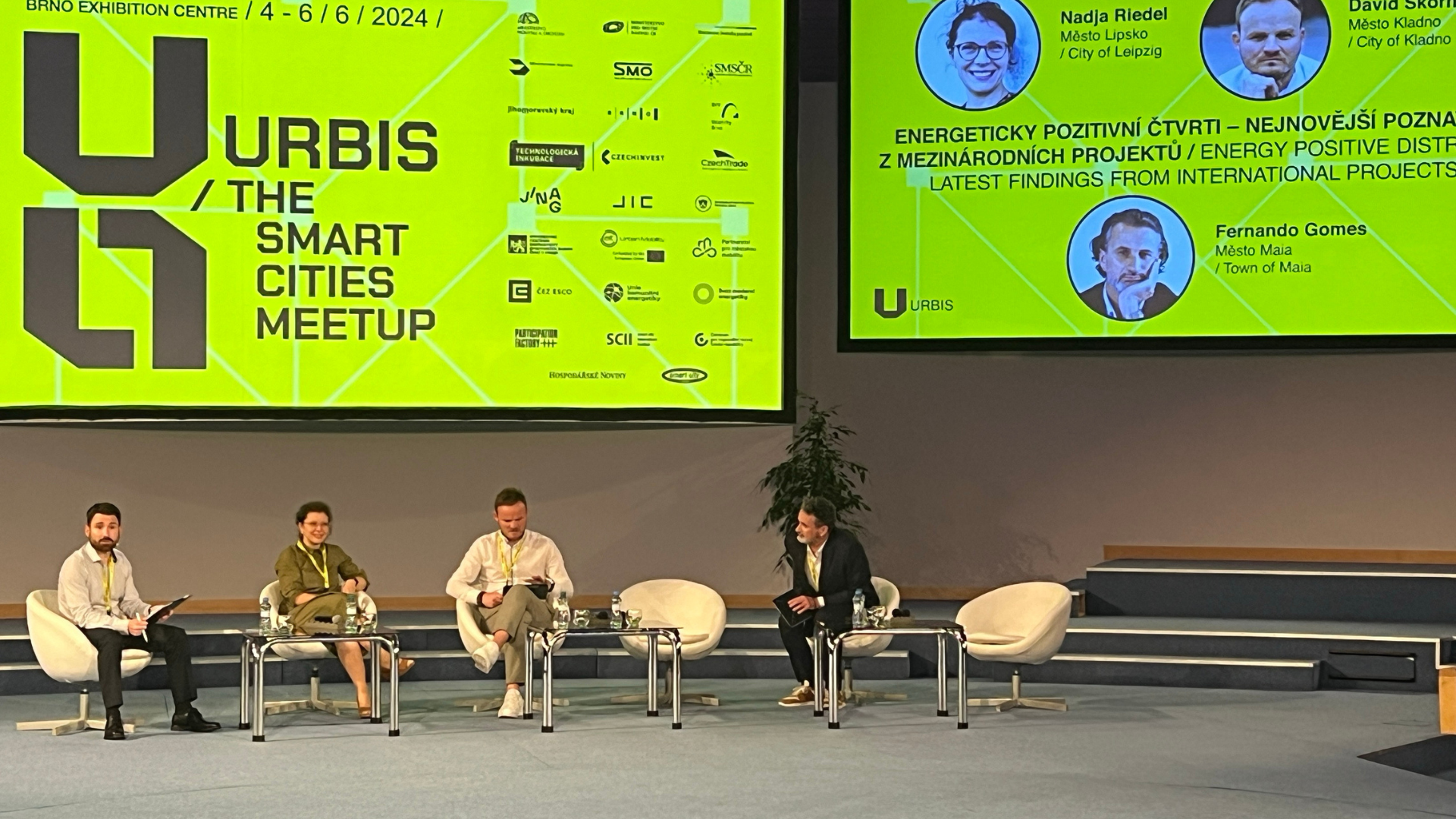SPARCS Presents Learnings on Cities’ Energy Transformation at URBIS Smart City Meet-Up
Three SPARCS cities – Leipzig, Kladno, and Maia – shared their experiences with energy transformation at the district and city level on the main stage of the URBIS Smart City Meet-up on June 5 in Brno. The panel, hosted by Michal Kuzmič from the Czech Technical University, was part of the international main stage program on the first day of the smart city fair.
Nadja Riedel from the City of Leipzig highlighted Leipzig’s journey from a shrinking city to one of Germany’s fastest-growing urban areas. Key to this transformation has been the strategic cooperation between the municipality and private investors. Projects like SPARCS have facilitated a necessary platform for stakeholder collaboration, moving the city closer to climate neutrality. Leipzig’s demo site in SPARCS Baumwollspinnerei and the Konsumzentrale stand as prime examples of successful partnerships.
David Škorňa, representing the City of Kladno, shared the city’s shift from its coal-centric heritage to adopting renewable energy sources. Leveraging EU projects such as SPARCS, Kladno developed a strategic approach toward climate neutrality, emphasizing the importance of collaboration with businesses and citizens to explore energy flexibility. The city is working on diversifying energy resources to bolster resilience against future crises and is looking into replicating the successes of energy-positive districts (PEDs) across other areas in the city.
Fernando Gomes from the City of Maia, Portugal, addressed the critical challenge of energy poverty. Through SPARCS, Maia has created a roadmap toward achieving climate neutrality by 2050, drawing inspiration and knowledge from lighthouse cities like Leipzig and Espoo. The city’s primary demonstration site, the Sobreiro social housing district, serves as a playground for solutions to tackle energy poverty, including the creation of an inclusive renewable energy community.
This panel discussion underscored the importance of international collaboration, stakeholder engagement, and innovative technologies in driving the transition towards energy-efficient and self-sufficient urban environments.



